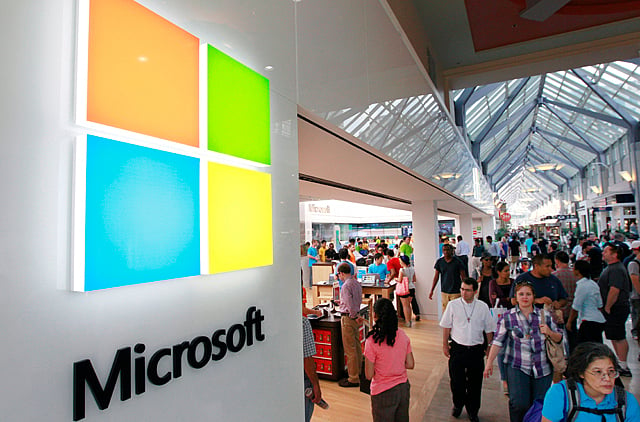Windows 10 support ends October 14: What UAE users should do before it’s too late
Microsoft ends free security updates for Windows 10 — here’s how to stay safe and upgrade

After more than a decade of updates, Microsoft has officially ended support for Windows 10 today, marking the end of one of the world’s most widely used operating systems.
From offices to classrooms to home laptops across the UAE, millions still rely on Windows 10. But starting today, Microsoft will no longer provide free security patches, bug fixes, or technical support — a move that leaves older PCs increasingly vulnerable to cyberattacks if users don’t take action.
The announcement, confirmed on Microsoft’s official support page, urges users to move to Windows 11 or explore secure alternatives.
What 'end of support' really means
Your computer will still turn on, and your files are safe — for now. But without Microsoft’s regular updates, new security threats or system bugs will go unpatched.
“Using an unsupported operating system is like driving an old car without airbags,” explains a Dubai-based IT technician. “It works fine, but one crash and you’ll wish you had upgraded.”
Some components of Windows 10 will still receive limited updates:
Microsoft Edge will continue to be supported until October 2028, according to Windows Central.
Office 365 and Microsoft 365 apps will also get security updates for a few more years.
However, the operating system itself will no longer evolve — leaving users exposed to malware, ransomware, and phishing campaigns targeting outdated systems.
How to know if you can upgrade
The simplest solution is to move to Windows 11, Microsoft’s latest version built for faster performance, tighter security, and AI-ready features.
You can check if your device qualifies using the PC Health Check app from Microsoft’s website. It scans for compatibility factors like the TPM 2.0 security chip and a supported processor.
If your device meets the requirements, back up your files and upgrade. Microsoft still allows free upgrades from many Windows 10 installations, provided your system is activated and compatible.
If your computer is too old or fails the compatibility check, you’re not completely out of options. Microsoft will offer Extended Security Updates (ESU) — a paid program that continues critical patches for up to three years. The ESU route is ideal for businesses, schools, and individuals who need more time to transition.
If you’re sticking with Windows 10 (for now)
Many users may not be ready to upgrade immediately. In that case, here’s how to protect yourself:
Keep your antivirus software updated.
Use a modern browser (Edge, Chrome, or Firefox) that still receives security fixes.
Avoid suspicious downloads and emails.
Regularly back up your data to an external drive or cloud storage.
Disable unnecessary startup apps and system permissions to reduce exposure.
These steps won’t make your system invincible, but they’ll reduce the risk while you plan your upgrade.
Upgrade or switch
If your machine can’t handle Windows 11 and you don’t want to pay for ESU, it might be time to consider a hardware refresh.
New laptops with Windows 11 pre-installed start at around Dh1,200–1,800 in major UAE electronics stores such as Sharaf DG, Jumbo, and Amazon.ae. Entry-level devices already include security features like TPM 2.0, making them ready for the next decade of updates.
Alternatively, some users are exploring Linux, a free and secure operating system that runs efficiently on older hardware. Distributions like Ubuntu or Mint offer a familiar desktop experience for users who just need browsing, office work, and streaming.
A decade comes to an end
When Windows 10 launched in 2015, it was hailed as 'the last version of Windows,' with Microsoft promising continuous updates instead of major overhauls. Yet technology has moved faster than expected, and the company is now pivoting toward a cloud-connected, AI-driven future built into Windows 11 and beyond.
For users in the UAE, especially those balancing cost and convenience, the change may feel inconvenient — but it’s also a reminder that digital security must evolve with time.
“You can keep using your PC,” the IT technician adds, “but remember — the world around it is moving on.”
Bottom line: Windows 10 isn’t shutting down, but it’s officially out of the safety net. Upgrade if you can, secure what you have if you can’t, and plan for the future before it’s too late.
Network Links
GN StoreDownload our app
© Al Nisr Publishing LLC 2026. All rights reserved.